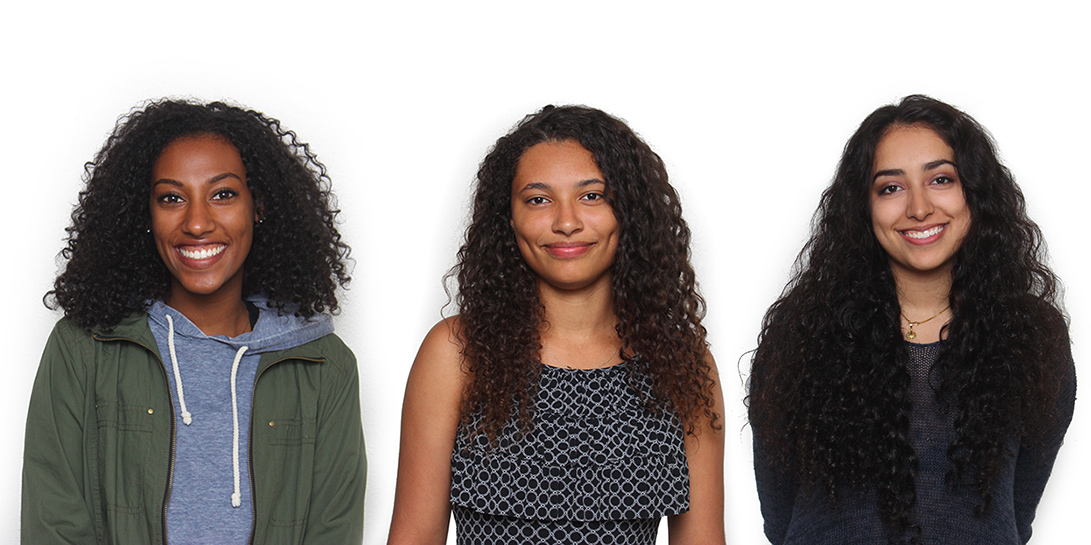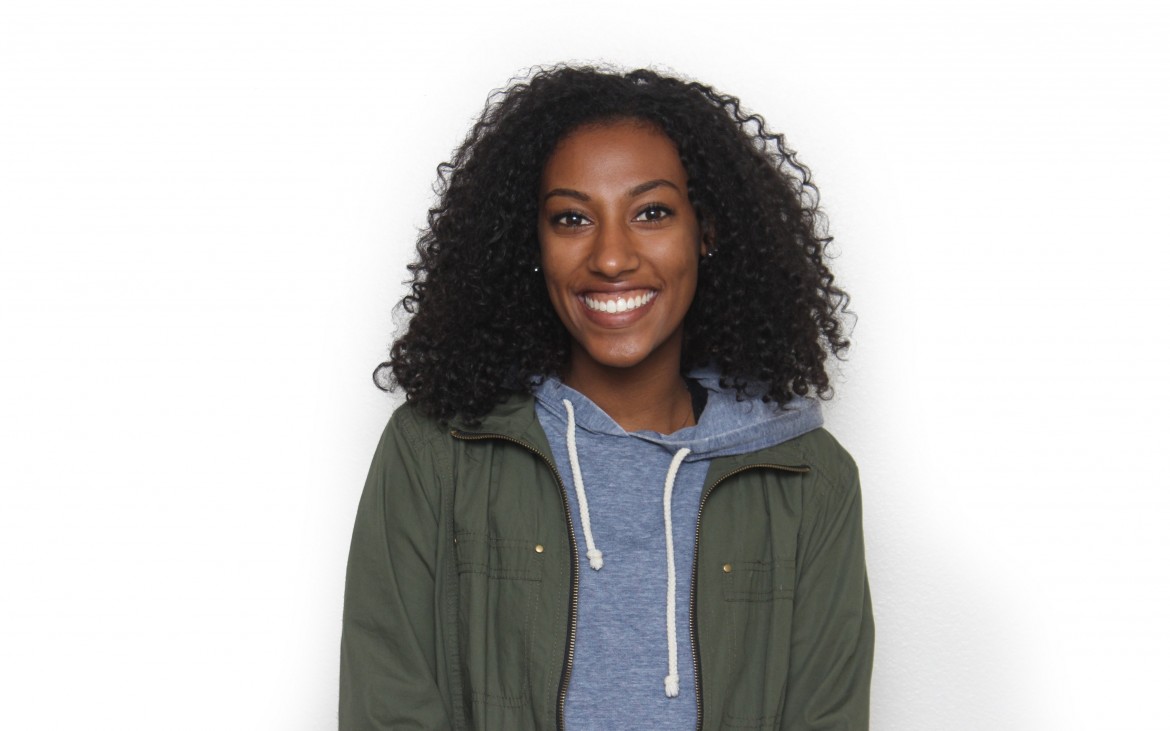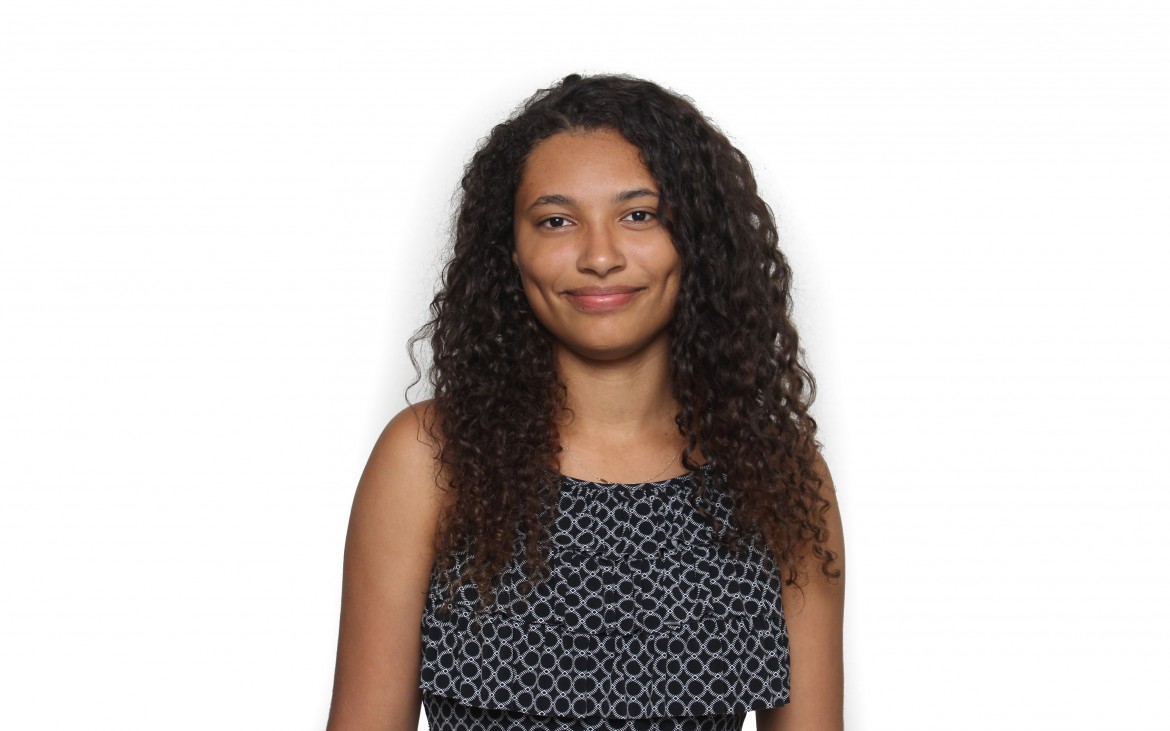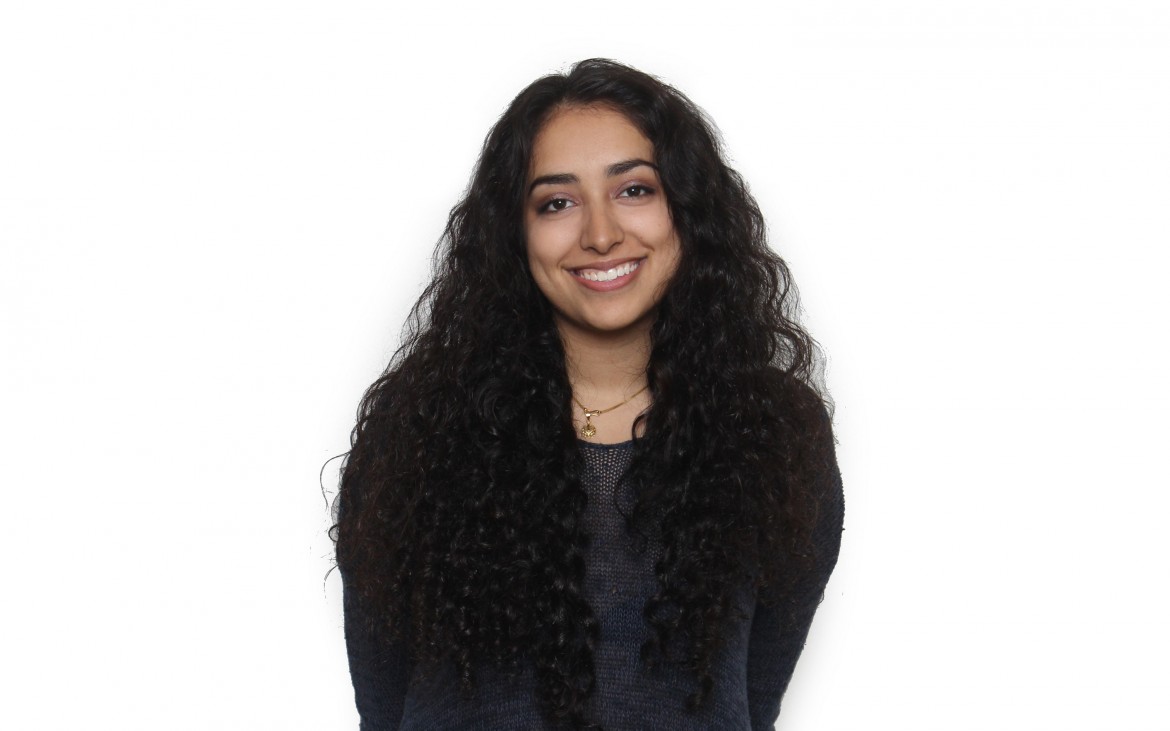Brown Beauty: The Journey to Loving Your Hair

Images by Olivia Elia, a second year art major.
Being a woman of color comes with its sets of hardships that media often fails to bring to society’s attention unless history occurs. When that conversation does happen, the process of self-acceptance women of color have to go through throughout their lives is rarely brought up. Is this process an identity struggle? Yes. Is it a consequence of societal pressures? Of course, but no one is immune to these pressures. However, is it different for every woman of color? Absolutely, yes.
More specifically, I am talking about women of color with curly hair. In the past, curly hair was neglected — products and styles were hard to come by. The lack of representation of women of color with curly hair in magazines and advertisements creates a standard of what’s considered beautiful. It has become increasingly acceptable for curly-haired women to wear their hair natural in mainstream society — not adding any form of heat to their hair. Recently, Maria Borges became the first women of color model to wear her natural hair without extensions or weave in during the Victoria’s Secret Fashion Show. Similarly, closer to home, UCLA students Bethel Zelalem, Crissonna Tennison, and Harman Araich proudly wear their natural curls. Through interviewing each young women of color, I discovered their personal journeys of accepting their hair while growing up in an anti-curls society.
Bethel Zelalem grew up as one of the few students of color in her middle and high school. This caused her to feel like an outsider with the black community at times. She didn’t see their struggles as her own due to not experiencing them personally. Zelalem felt detached from her identity as a woman of color. She began to straighten her hair in sixth grade. She recalled growing up thinking straight hair “is what’s pretty [and] what everyone is doing,” stating that she felt like “the odd one out.” For the remainder of middle and high school she straightened her curls to avoid feeling less beautiful than her peers.
Unlike Zelalem, Crissonna Tennison did not straighten her hair because her mom wouldn’t allow it. She claims she “stuck out like a sore thumb” in high school being the only one with curly hair. Not only did that subject her to comments such as “you would be so pretty if your hair was straight,” but as she recalls, it also left her “really uncomfortable with letting [her] hair be natural.” As a result, Tennison always put her hair in a bun half way into the day.
Harman Araich also struggled with her hair, braiding it throughout the majority of high school. However, Araich’s number one insecurity was her “terribly thick” eyebrows, which she didn’t tend to until sophomore year. Her battle of acceptance led her to seek validation from others just to do simple activities like join a club.
All three of the young women I interviewed overcame their insecurities and strengthened their confidence in various ways.
When Zelelam came to UCLA, she received compliments on her curly hair, something fairly new to her, which provided her with the reminder she needed from those around her that her natural hair was beautiful. Now, Bethel rocks her curly hair with the help from OGX’s conditioner, coconut, and argan oil.

Tennison admits that as society’s attitude towards curly hair changed, her outlook changed as well. Now, Tennison embraces her hair with CHI’s leave in conditioner and shea butter that gives her curls the proper moisture they need.

Araich began to see herself differently when she gained admittance to colleges others in her high school were not accepted to, thus reminding her that the only validation she needed was from herself. Now, she flaunts her hair with pride and, most importantly, her eyebrows. She uses coconut and moroccan oil for her curls and goes to the Thread Bar in Westwood for eyebrow care.

The journey to self-acceptance is a common narrative for most women, however, women of color have additional struggles. Partly due to the lack of awareness and hair care surrounding curly-haired women of color, curly hair has been altered with heat and neglect. These young women profiled here all had different journeys and different paths to acceptance. Accepting your curly hair isn’t always found at the bottom of a coconut oil bottle, but it’s a good first step.




